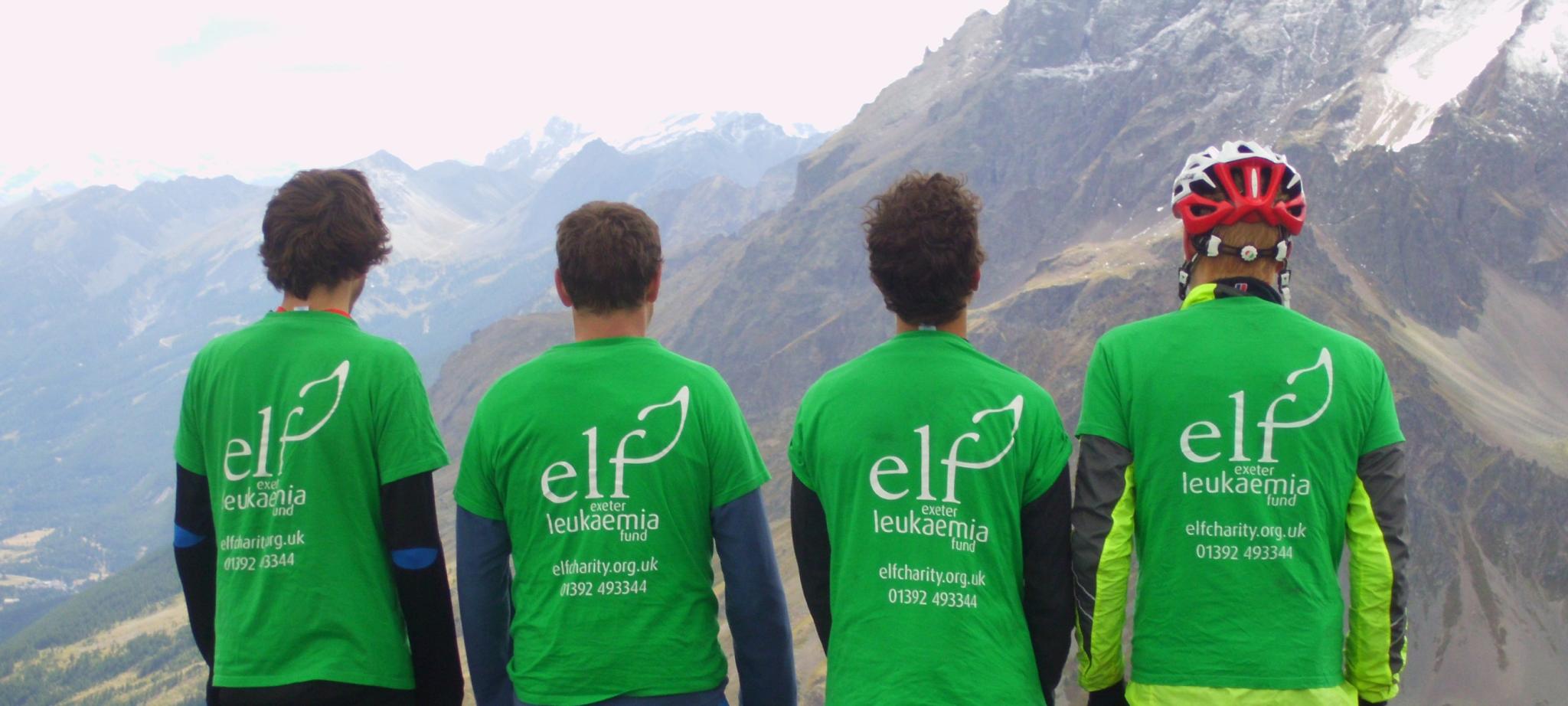1. Introduction and Overview
Our volunteering policy aims to reflect the high esteem in which ELF holds volunteers. Volunteers bring valuable experience of life to the charity. They champion the cause and often challenge opinions and perspectives whilst demonstrating loyalty and commitment.
ELF’s remarkable record of achievement is not simply the work of our staff, it is also testament to the supporters who give so generously, especially of their time.
This policy sets out the broad principles for volunteering with ELF. It is relevant to everyone concerned with the recruitment, support, development and coordination of volunteers as well as volunteers themselves. ELF recognises that volunteering must benefit the individual as well as the charity and aims to provide an environment that is inclusive, stimulating, friendly and supportive.
This policy should be read in conjunction with our Equal Opportunities, Safeguarding and Privacy Policies.
2. Our commitment to volunteering
Volunteers are an established, valued and integral part of ELF. The activities of the charity’s volunteers are crucial in helping to raise funds necessary to carry out our work and the charity seeks volunteer involvement wherever appropriate.
ELF commits to continually developing and maintaining dynamic and mutually beneficial relationships between volunteers and the charity.
Volunteers are ELF’s lifeblood and ambassadors. The charity recognises that the activities of volunteers are a positive force in raising the charity’s profile and support in the community. Volunteers generate much appreciated sums of money every year, directly through their fundraising activities, support in our charity shops, and also indirectly, networking through family, friends and associates.
3. Equal opportunities
ELF has an Equal Opportunities Policy in place for both staff and volunteers and believes that no one should be treated less favourably than anyone else because of their gender, marital status, sexual orientation, social class, race, ethnic origin, religious belief or disability. We actively welcome and encourage diversity amongst our volunteers.
We are committed to diversity in all areas of our work and believe that we can learn from diverse cultures and perspectives. Please see our Equal Opportunities and Recruitment Policies for more information.
4. Who is a volunteer?
A volunteer is someone who does not receive financial compensation beyond the reimbursement of expenses and who performs a task at the request of, or on behalf of ELF.
The volunteer relationship is binding in honour, trust and mutual understanding. No enforceable obligation, contractual or otherwise can be imposed on volunteers to attend. Likewise, the charity does not undertake to provide regular volunteering opportunities, payment or other benefit for any activity undertaken.
5. Scope of volunteering
Many volunteers are involved in the charity within our shops, café, events and local supporter fundraising operations etc. The charity acknowledges it has responsibilities to its volunteers and similarly has expectations of its volunteers.
ELF’s responsibilities
-
To match the needs of the charity with the skills, knowledge, experience and motivation of the volunteer.
-
To recognise that successful volunteer involvement incorporates the individual’s motivations, aspirations and choices.
-
To ensure paid staff are trained to work with volunteers.
-
To ensure volunteers receive appropriate training and support to help them deliver in their roles.
-
To celebrate success and recognise loyalty and dedication.
-
To respect volunteers, listen and learn from what they have to say, consistently encouraging two-way communication.
-
To provide timely and accurate information about the charity’s work, policies and procedures.
-
To foster a friendly and supportive atmosphere - aiming to make volunteering fun.
-
To try to resolve fairly any complaints or grievances.
-
To ensure every volunteer has access to a named member of paid staff to guide and advise them.
-
To ensure the health, safety and welfare of all ELF volunteers whilst undertaking their volunteering activities.
-
To ensure the proper insurance arrangements are in place for any activities.
Our expectations of volunteers
-
To maintain and uphold the good name and reputation of the charity.
-
To aim for high standards of efficiency, reliability and quality in all aspects of their contribution.
-
To encourage two-way communication with other volunteers and paid staff, fostering a pleasant and friendly atmosphere.
-
To support the charity’s equal opportunities and diversity policy and help promote the diversity of its staff and supporters.
-
To accept that the ultimate responsibility for the affairs of the charity rest with the charity’s Trustees and management.
-
To familiarise themselves with policies relevant to their role, for instance our Safeguarding and Privacy Policies.
-
To work within the law – for instance, restrictions relating to lotteries and street collections. Volunteers should seek advice, where appropriate, from their ELF supervisor.
-
To respect the need for confidentiality whenever they have access to restricted charity information.
-
To ensure fundraising activities guidelines are adhered to, including all aspects of use of the charity’s logo and media contact.
-
To ensure fundraising activities do not have any association with inappropriate companies e.g. tobacco companies or their subsidiaries and ensure sponsorship support is appropriate for the cause of ELF. If there is any doubt, volunteers should seek guidance from their ELF supervisor.
-
To take reasonable care of their own health and safety whilst volunteering and that of others who may be affected by their acts or omissions.
6. Recruitment
The charity encourages involvement by volunteers from all sections of the community and will not discriminate against any volunteers in the selection procedure.
The charity welcomes volunteers of all ages. We do not specify an upper age limit and ELF recognises the valuable contribution made by older volunteers in terms of knowledge and experience.
Young volunteers can bring fresh perspectives and enthusiasm to the charity whilst gaining valuable skills and experience. Young volunteers must be at least 16 years old. All young people who have not reached the age of 18 will be protected in accordance with the Health and Safety (Young Persons) Regulations 1997.
Selection procedures for individual volunteers must protect the charity’s interests. References are sought in most cases. The charity must be satisfied that the volunteer possesses the appropriate personal qualities e.g. responsible, reliable and considerate of those around them.
7. While volunteering for us
New volunteers are made to feel welcome and will be provided with relevant information, training and induction as appropriate to their role.
Fundraising volunteers will be offered support and guidance on organising events, publicity and presentation.
Volunteers may wish to develop their skills whilst helping the charity and where appropriate are encouraged to take on new roles and/or become further involved.
Volunteers in our shops should be given time to settle in, to allow them to learn about the charity, their own role within the charity and to give the charity time to assess how their involvement is working out. At the end of an agreed period of time an informal meeting is held to clarify any areas of concern.
ELF training courses, seminars & conferences may be available to volunteers as appropriate.
It is recommended that the progress and contribution of volunteers is discussed regularly, this will provide the opportunity for each volunteer and the charity to establish whether the hours of involvement with the charity should be adjusted.
The charity would be irresponsible if it permitted volunteers to continue beyond a point where volunteering may be detrimental to their own or other people’s health or safety or the best interests of the charity and may decide it is appropriate for a volunteer to reduce or cease their volunteer contribution.
8. Grievance and conduct issues
Every effort will be made to settle any dispute or volunteer grievance fairly and amicably. In the first instance, a volunteer should take their grievance to their supervisor. If the matter is not settled satisfactorily, a volunteer may then escalate their grievance to their supervisor’s line manager. Where an issue cannot be resolved at this point a senior manager may mediate.
If there are concerns around a volunteer’s behaviour or contribution, the matter will be discussed amicably and steps agreed to address it. These may include additional training or mentoring. However, if these areas of concern cannot be resolved after more formal discussions, the volunteering relationship with the charity may have to cease.
ELF must protect its reputation in all circumstances and where a volunteer takes an action that may bring our name into disrepute, the volunteer’s involvement with the charity will be stopped immediately. This also applies to any financial irregularity or violent conduct towards staff, other volunteers or members of the public.
9. Moving on
The charity recognises that volunteers may cease their involvement at any time. It is recommended that when a volunteer chooses to cease their links with the charity that their reasons for leaving are sought, any learning points are shared and it is established whether they might wish to be involved again in the future.
10. Expenses
Volunteers may be able to reclaim reasonable expenses. This should be discussed with the supervisor in advance at which point details will be given about the expense process.
11. Health and safety
The charity is committed to providing a safe and healthy environment for all volunteers on its premises and to giving appropriate instruction, training and supervision for their welfare. Our written health and safety policy is available from the ELF Office/Centre/shops or Café.
All volunteers are expected to conduct themselves in a safe and responsible manner and not to act in a way that may put themselves or others at risk of injury.
Fundraising volunteers must take all necessary steps to ensure their own and the public’s safety at any event they organise, seeking advice, if required, from the ELF Office.
It is the responsibility of all volunteers in the charity’s shops and offices or fundraising in the community, to report any accident/incident or dangerous circumstance or occurrence to a paid member of staff, irrespective of whether any person has been injured.
12. Supervision and support
In most circumstances, volunteers will be directly or indirectly supervised or supported by a paid member of staff. For instance, a volunteer helping in one of our shops will be trained and supervised by the shop manager. Volunteers fundraising for ELF in their communities will have the support and guidance, if required, of the fundraising team.
ELF has a responsibility to monitor and audit all its fundraising activities. This is essential in maintaining our reputation with the general public as a charity that can be trusted to manage donations honestly and cost effectively, whether gifts of clothing to our shops or money to local fundraising groups.
Monitoring includes auditing fundraising groups’ income and expenditure annually, regular auditing of our shops and occasional spot checks on our shops to identify any irregularities that may have arisen through a training need.

